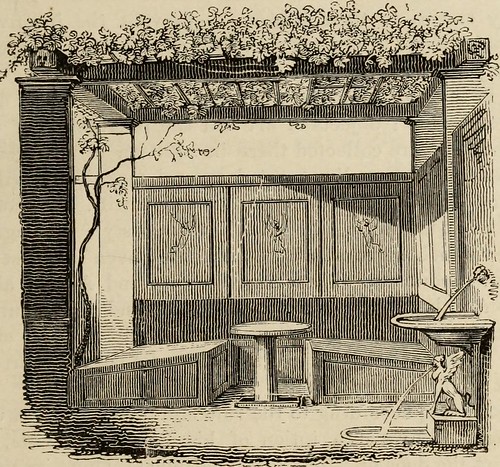xystus /ZIS-təs/. noun. For ancient Greeks, a covered portico used for exercise. For ancient Romans, an open colonnade with trees designed for recreation and conversation. Also a Latinized form of the Roman name Sixtus. From Greek xystos (scraped, polished).
“Mentioned by Josephus as a place in Jerusalem surrounded by porticoes and used by gymnasts and for public assemblies; it was designed by Herod the Great.” (Oxford Dictionary of the Bible)
“Philosophers who aired their elegant doubts in the shady xystus.” (Frederic William Farrar)
“…she is standing on the Xystus with Agrippa, entreating the people not to injure themselves by resistance.” (George Eliot)
“…there were gates on that side above the Xystus, and a bridge that connected the upper city to the Temple. This bridge it was that lay between the tyrants and Caesar, and parted them…” (from The Great Events by Famous Historians)
“The xystus, or garden, adjoining the house had been laid out like a Grecian landscape with cypresses and laurels between squares of roses and violets.” (Vicente Ibanez)
“The viridarium, or xystus, surrounded with spacious porticoes, was once filled with the choicest flowers, and refreshed by the grateful murmur of two fountains.” (Thomas Henry Dyer)




